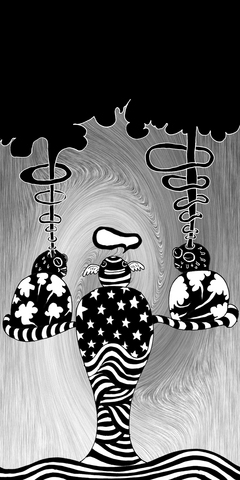President George W. Bush's abilities as an opening batsman may be tested when he visits Pakistan this week. US National Security Adviser Stephen Hadley said that when Bush attends a "cricket event" on Saturday in Islamabad, it is uncertain whether he plans to watch or play. "Who knows what he'll do?"
As Bush steps up to the crease, the official spin on his one-day visit, which follows a trip to India and precedes a stopover in Afghanistan, is that Washington has Pakistan's interests at heart.
The bilateral agenda includes counter-terrorism, the Kashmir dispute with India, and elections promised next year by Pakistani President Pervez Musharraf, who seized power in a 1999 coup.

But Bush, pointing to US help after last October's earthquake, is keen to show the common touch.
"This is a relationship that's much bigger than the `war on terror,'" he told Pakistani television at the weekend. Pakistanis should know "that the American people care about them."
This feeling is not reciprocated in some quarters. Much of the country is in uproar, ostensibly over the Danish cartoons scandal.
Islamist parties, principally the Jamaat-e-Islami (JI), have used the row and visit to stoke opposition to Musharraf and his US alliance, linking it to "anti-Muslim" US actions along the Afghan border and in Iraq and exploiting economic discontent.
Musharraf's hold on power is weaker than at any time since 1999, said Ayaz Amir, a Dawn newspaper columnist. "Since beleaguered governments are prone to clutch at straws, we can expect Islamabad to gloat over the Bush visit. Given the tide of anti-Americanism on which the country is afloat, it is more likely to be a huge embarrassment if not an outright kiss of death."
Graham Usher, writing from Islamabad for The Nation, said the JI linked the Pakistani military's Inter-Services Intelligence Agency to jihadi groups in Afghanistan and Kashmir -- until Musharraf got in the way. He suggested the army could move against him if events spun out of control, as it had against previous leaders.
"The Islamists in Pakistan have never been so powerful," he said.
A government official said that was an exaggeration.
"The Islamist parties have street power but as far as voting power is concerned, Pakistan is a very moderate society," he said.
Musharraf had strengthened grassroots democracy, he said, and the economy was expanding. Next year's elections, including a presidential contest, would go ahead.
But Human Rights Watch said Bush should press Musharraf to stand down, claiming he had weakened mainstream political parties and democratic processes.
"Statements from pro-government politicians appear to be setting the stage for Musharraf's continued rule past 2007," the group said. "The US should not allow Musharraf to exploit his alliance in the `war on terror' to entrench himself further in power."
Bush, a keen Musharraf admirer, is likely to ignore such advice. Although the US says it wants faster progress on restoring democracy, Pakistan's primary importance to Washington remains its key role in helping fight al-Qaeda and the Taliban.
In India, similarly hard-headed calculations will be in play. Bush will seek a strengthened strategic and economic partnership, partly through nuclear cooperation, to help offset the rise of China.
He says he will push for a Kashmir solution. But more pressing in American eyes is the need to stiffen Indian support for apparently contradictory curbs on Iran's nuclear activities. The US is also urging cancelation of a joint gas pipeline project with Tehran.
As in Pakistan, such US aims are highly controversial. To achieve them, Bush will need to show deft footwork amid much hostile bowling.
China’s recent aggressive military posture around Taiwan simply reflects the truth that China is a millennium behind, as Kobe City Councilor Norihiro Uehata has commented. While democratic countries work for peace, prosperity and progress, authoritarian countries such as Russia and China only care about territorial expansion, superpower status and world dominance, while their people suffer. Two millennia ago, the ancient Chinese philosopher Mencius (孟子) would have advised Chinese President Xi Jinping (習近平) that “people are the most important, state is lesser, and the ruler is the least important.” In fact, the reverse order is causing the great depression in China right now,
We are used to hearing that whenever something happens, it means Taiwan is about to fall to China. Chinese President Xi Jinping (習近平) cannot change the color of his socks without China experts claiming it means an invasion is imminent. So, it is no surprise that what happened in Venezuela over the weekend triggered the knee-jerk reaction of saying that Taiwan is next. That is not an opinion on whether US President Donald Trump was right to remove Venezuelan President Nicolas Maduro the way he did or if it is good for Venezuela and the world. There are other, more qualified

This should be the year in which the democracies, especially those in East Asia, lose their fear of the Chinese Communist Party’s (CCP) “one China principle” plus its nuclear “Cognitive Warfare” coercion strategies, all designed to achieve hegemony without fighting. For 2025, stoking regional and global fear was a major goal for the CCP and its People’s Liberation Army (PLA), following on Mao Zedong’s (毛澤東) Little Red Book admonition, “We must be ruthless to our enemies; we must overpower and annihilate them.” But on Dec. 17, 2025, the Trump Administration demonstrated direct defiance of CCP terror with its record US$11.1 billion arms
The immediate response in Taiwan to the extraction of Venezuelan President Nicolas Maduro by the US over the weekend was to say that it was an example of violence by a major power against a smaller nation and that, as such, it gave Chinese President Xi Jinping (習近平) carte blanche to invade Taiwan. That assessment is vastly oversimplistic and, on more sober reflection, likely incorrect. Generally speaking, there are three basic interpretations from commentators in Taiwan. The first is that the US is no longer interested in what is happening beyond its own backyard, and no longer preoccupied with regions in other